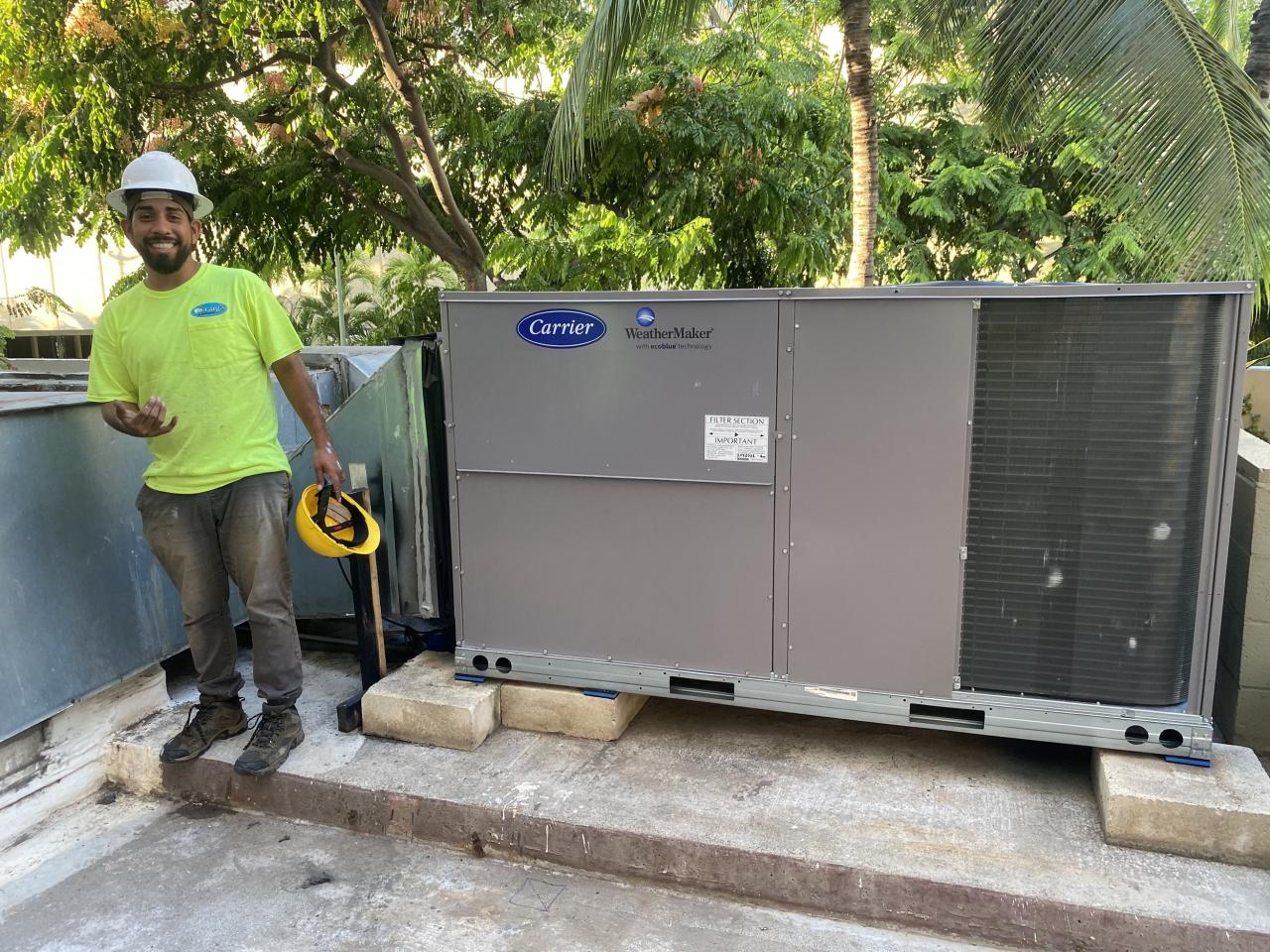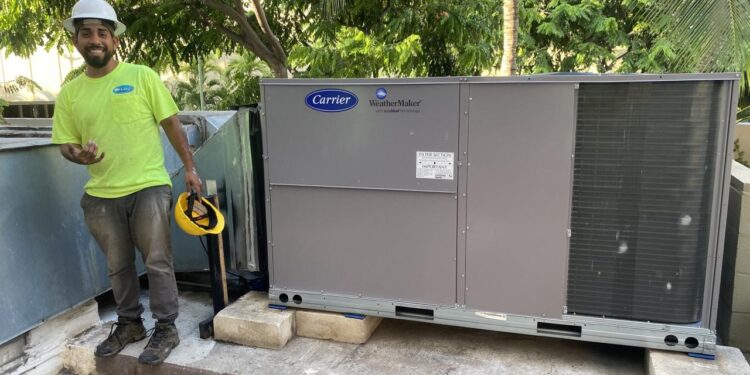As carrier AC service near me becomes a crucial aspect of maintaining your cooling system, this introduction aims to provide a comprehensive overview in a casual formal language style, inviting readers to delve into the world of efficient maintenance and reliable service providers.
In the following paragraphs, we will explore the importance of regular maintenance, common issues and troubleshooting, finding a reliable service provider, and the cost of services and maintenance for Carrier AC units.
 Importance of Regular Maintenance
Regular maintenance for Carrier AC units is crucial to ensure optimal performance and longevity of the system. Neglecting maintenance can lead to a range of issues that may impact the efficiency and effectiveness of the unit, as well as increase the risk of costly repairs or replacements.
. To troubleshoot this problem, check for any obstructions in the air ducts, clean the evaporator coil, and ensure that the fan motor is functioning properly.
If the issue persists, contact a professional for further assistance.
Importance of Regular Maintenance
Regular maintenance for Carrier AC units is crucial to ensure optimal performance and longevity of the system. Neglecting maintenance can lead to a range of issues that may impact the efficiency and effectiveness of the unit, as well as increase the risk of costly repairs or replacements.
. To troubleshoot this problem, check for any obstructions in the air ducts, clean the evaporator coil, and ensure that the fan motor is functioning properly.
If the issue persists, contact a professional for further assistance.
 Importance of Regular Maintenance
Regular maintenance for Carrier AC units is crucial to ensure optimal performance and longevity of the system. Neglecting maintenance can lead to a range of issues that may impact the efficiency and effectiveness of the unit, as well as increase the risk of costly repairs or replacements.
Importance of Regular Maintenance
Regular maintenance for Carrier AC units is crucial to ensure optimal performance and longevity of the system. Neglecting maintenance can lead to a range of issues that may impact the efficiency and effectiveness of the unit, as well as increase the risk of costly repairs or replacements.
Consequences of Neglecting Maintenance
- Decreased efficiency: Dust and debris can build up in the system, causing it to work harder and consume more energy.
- Reduced lifespan: Lack of maintenance can accelerate wear and tear on components, leading to premature failure.
- Poor air quality: Dirty filters and coils can result in poor indoor air quality, affecting your health and comfort.
- Higher repair costs: Neglecting maintenance can result in minor issues turning into major repairs over time.
Tips on Maintenance Frequency
Regular maintenance should ideally be performed at least once a year. However, in some cases, it may be beneficial to schedule maintenance twice a year, especially before the start of the cooling season. Additionally, if you notice any unusual noises, odors, or performance issues with your Carrier AC unit, it is advisable to schedule maintenance promptly to address any potential issues.Common Issues and Troubleshooting
When it comes to Carrier AC units, there are several common issues that may arise. Knowing how to troubleshoot these problems can save you time and money in the long run. Here are some of the most frequent issues and steps you can take to address them:Faulty Thermostat
If your Carrier AC unit is not turning on or is not cooling properly, the thermostat could be the culprit. To troubleshoot this issue, check if the thermostat is set correctly and replace the batteries if needed. You can also try resetting the thermostat to see if that resolves the problem.Clogged Air Filters
Dirty or clogged air filters can restrict airflow and reduce the efficiency of your Carrier AC unit. To troubleshoot this issue, check the air filters regularly and replace them if they are dirty. This simple maintenance task can improve the performance of your AC unit and prevent more serious issues from occurring.Refrigerant Leaks
Refrigerant leaks can cause your Carrier AC unit to not cool properly or stop working altogether. If you suspect a refrigerant leak, it is best to contact a professional HVAC technician for help. Attempting to fix a refrigerant leak on your own can be dangerous and may result in further damage to your AC unit.Strange Noises
If you hear strange noises coming from your Carrier AC unit, such as rattling, buzzing, or grinding sounds, it could indicate a mechanical issue. To troubleshoot this problem, turn off the unit and inspect it for any loose or damaged parts. If you are unable to identify the source of the noise, it is best to contact a professional for assistance.Poor Airflow
Poor airflow from your Carrier AC unit can be caused by a variety of issues, including clogged air ducts, a faulty fan motor, or a dirty evaporator coilFinding a Reliable Service Provider
When searching for a reliable Carrier AC service provider near you, there are several factors to consider to ensure you receive top-notch service for your air conditioning unit.Reviews, Certifications, and Experience
It is essential to compare different service providers based on reviews, certifications, and experience to make an informed decision:- Read reviews: Look for customer feedback and testimonials online to gauge the reputation of the service provider. Positive reviews are a good indication of quality service.
- Check certifications: Ensure that the service provider is certified by Carrier or other relevant organizations. Certifications demonstrate expertise and adherence to industry standards.
- Evaluate experience: Consider the number of years the service provider has been in business. An experienced provider is likely to have encountered a wide range of issues and can offer effective solutions.
Verifying Credibility
Here are some tips on how to verify the credibility of a Carrier AC service provider:- Ask for references: Request references from past clients to get firsthand feedback on the service provider's performance.
- Check licenses and insurance: Ensure that the service provider is licensed and insured to protect yourself in case of any accidents or damages during the service.
- Request a written estimate: A reputable service provider will provide a detailed written estimate of the services to be performed and the associated costs.
- Verify background checks: Inquire if the technicians undergo background checks and are trained to handle Carrier AC units to guarantee a reliable service.
Cost of Services and Maintenance
When it comes to the cost of Carrier AC services and maintenance, it's essential to understand the typical range of expenses, factors that can influence these costs, and how to budget effectively for both regular maintenance and unexpected repairs.Typical Cost Range
- Regular Maintenance: The average cost for a routine maintenance service for a Carrier AC unit can range from $75 to $200. This includes tasks such as cleaning, inspections, and minor repairs.
- Unexpected Repairs: Repair costs for Carrier AC units can vary significantly depending on the issue. Minor repairs might cost around $100 to $500, while major repairs or component replacements could range from $500 to $1500 or more.
Factors Influencing Cost
- Age and Condition of the AC Unit: Older units or those in poor condition may require more extensive and costly repairs.
- Extent of Service Needed: The complexity of the maintenance or repair work can impact the overall cost.
- Availability of Parts: If specific parts need to be replaced, their availability and cost can contribute to the final bill.
Budgeting Tips
- Set Aside a Maintenance Fund: Allocate a portion of your budget specifically for routine maintenance to ensure you can cover these costs when they arise.
- Consider a Service Plan: Opting for a service plan with a reliable provider can help spread out the cost of maintenance over time and provide discounts on repairs.
- Stay Proactive: Regularly maintain your Carrier AC unit to prevent costly repairs in the future, saving you money in the long run.














